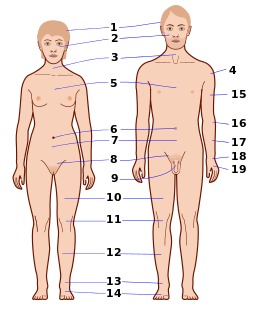hode
See also: Hode
English
Etymology
From Middle English hoden, hodien, from Old English hādian (“to ordain, consecrate”). More at hade.
Pronunciation
- (Received Pronunciation, UK) IPA(key): /həʊd/
- (General American, US) IPA(key): /hoʊd/
- Rhymes: -əʊd, -oʊd
Verb
hode (third-person singular simple present hodes, present participle hoding, simple past and past participle hoded)
- (transitive, obsolete) To ordain; consecrate; admit to a religious order.
Dutch
Etymology
From Proto-Germanic *huþô.
Middle English
Etymology 1
From hood (noun).
Etymology 2
From Old English hōd.
Etymology 3
From Old English hād.
Norwegian Bokmål
| Picture dictionary | ||
|---|---|---|
| ||
|
Etymology
From Old Norse hǫfuð, from Proto-Germanic *hafudą or *habudą, northern form of *haubudą, from Proto-Indo-European *kauput-, *kaput- (“head”).
Derived terms
See also
- hovud (Nynorsk)
References
- “hode” in The Bokmål Dictionary.
This article is issued from
Wiktionary.
The text is licensed under Creative
Commons - Attribution - Sharealike.
Additional terms may apply for the media files.


